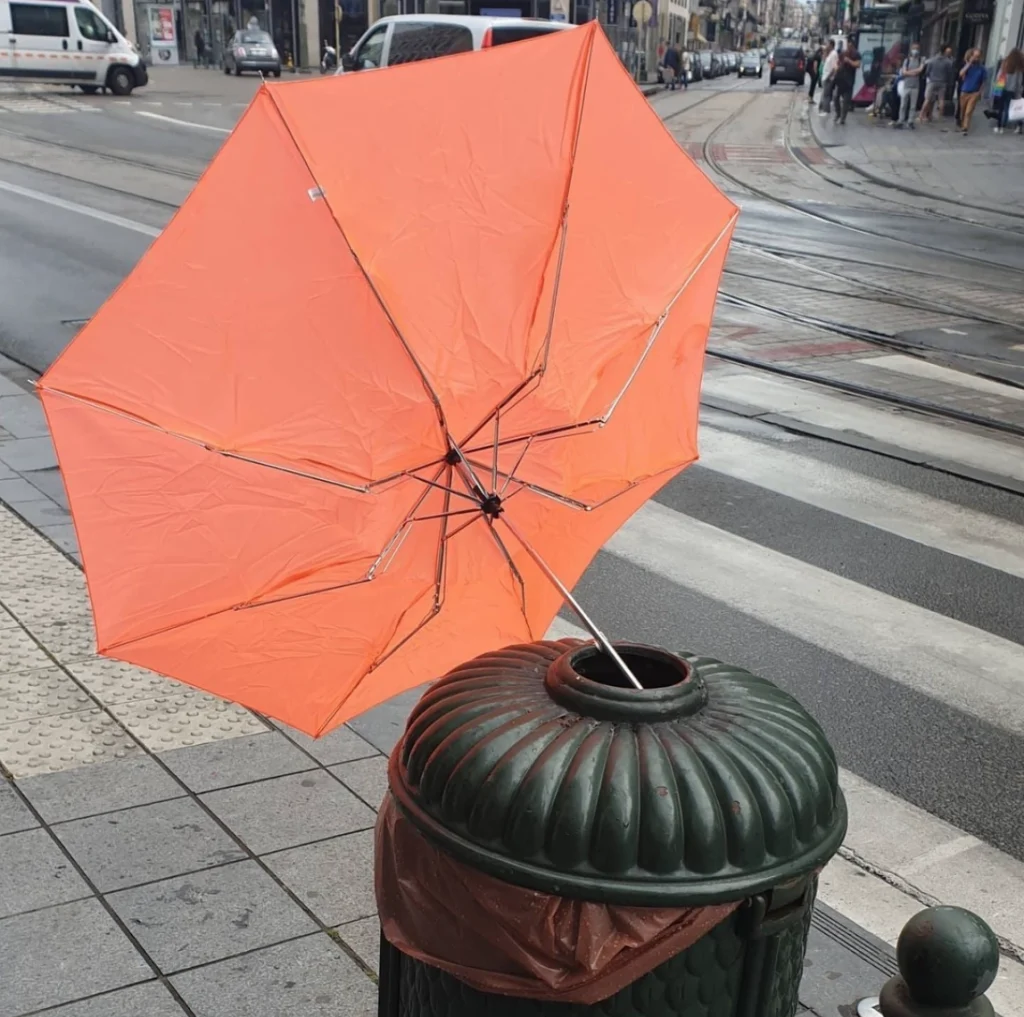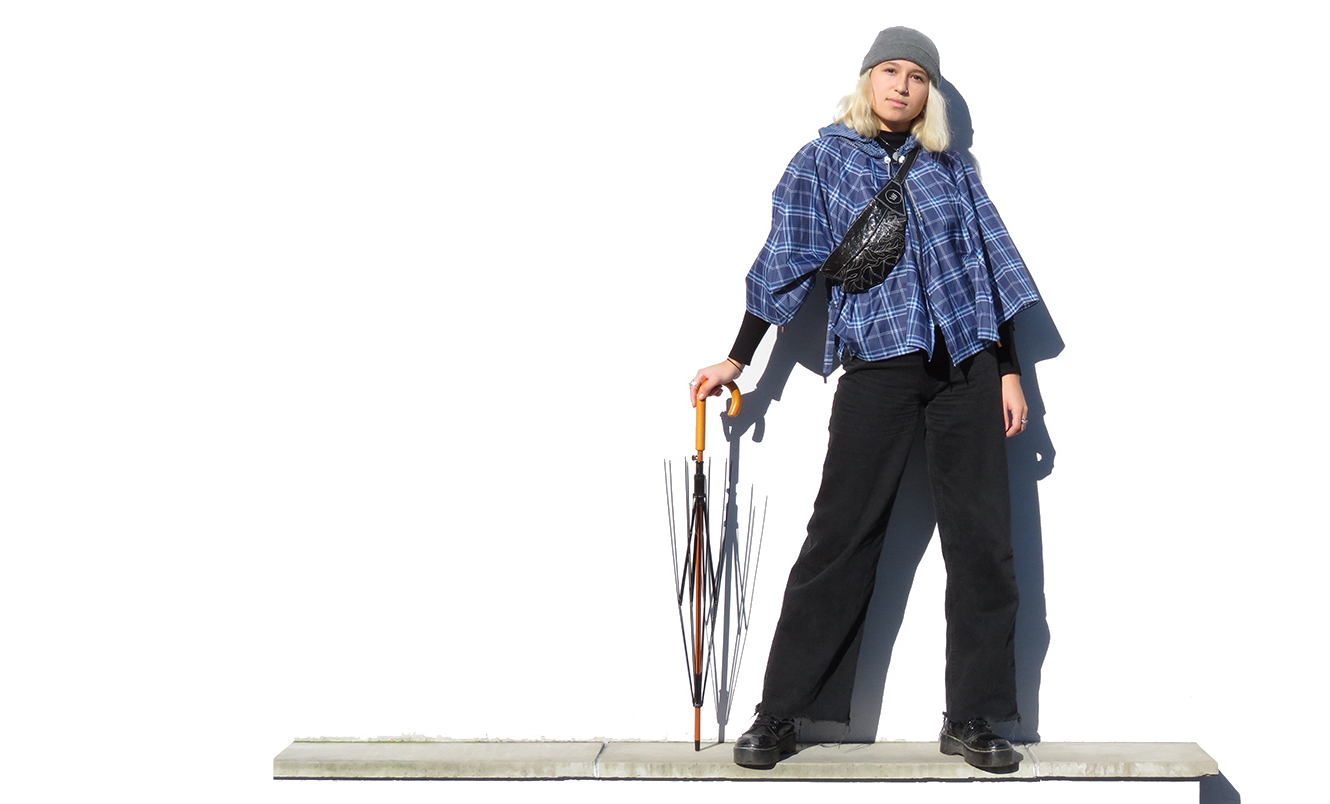“I didn’t really decide myself. People saw me in the street picking up umbrellas and said it was like Mary Poppins. I had the idea of Marypup because it’s funny,” says designer and eco-activist Melanie Iudica, as she recalls how the name of her upcycled rainwear brand came about.
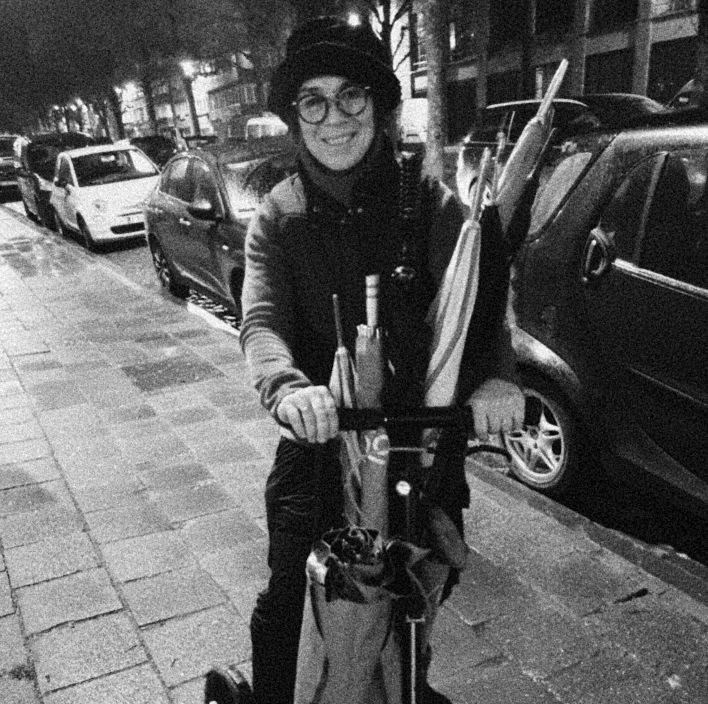
Two and a half years in, Melanie still rescues broken umbrellas discarded in the street, but she also has a network of help with collection boxes in fair fashion stores for people to drop off their broken brollies. This of course helps her to source more fabric to reuse, but the overriding aim is for people to participate in the upcycling activity. “I do this to show that we have to screw down our overconsumption and that we have to change…This is the message of Marypup,” she says. And I think Melanie hits the nail we need on the head: “A serious message can come through better when it’s funny.”
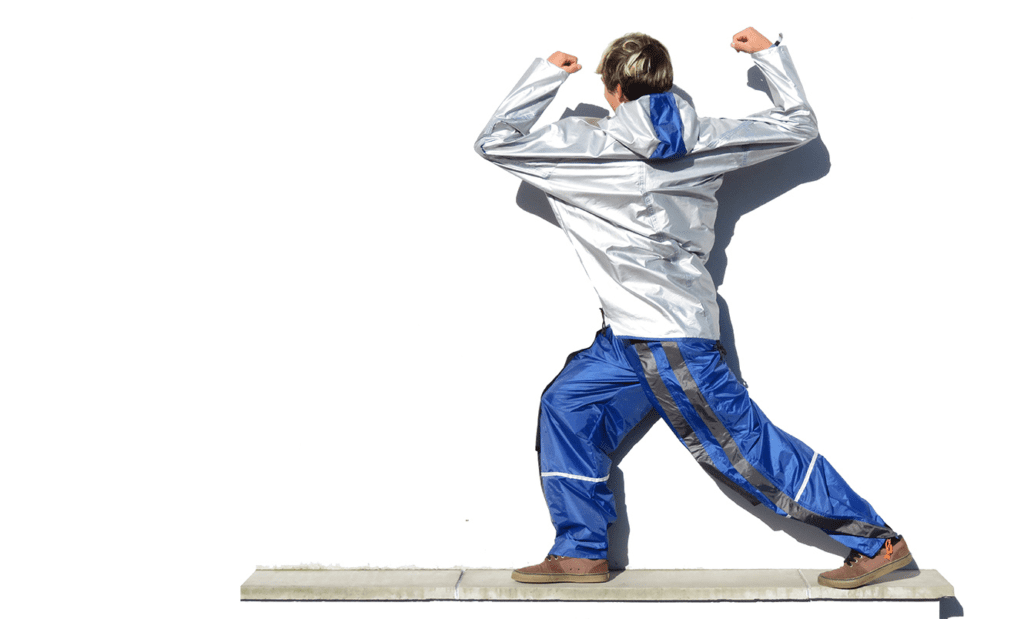
We are all increasingly aware of fashion’s impact on the environment which breeds a medley of consumer guilt and helplessness. A sense of humour has the ability to break down barriers and unite us in the feel-good effect of taking part in solutions.
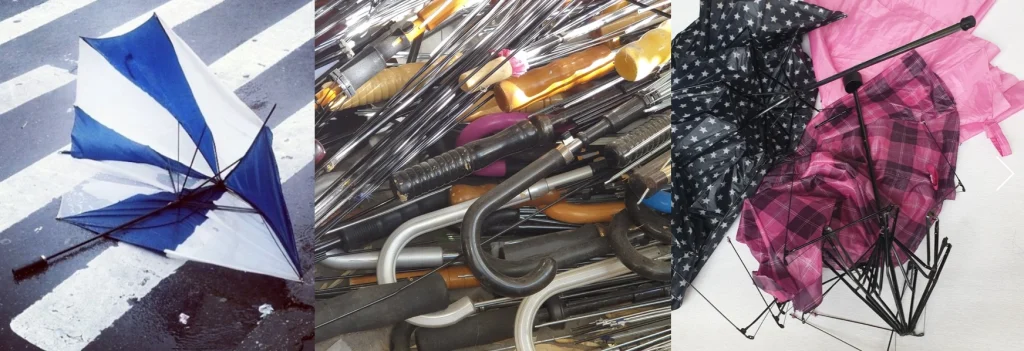
I discovered the brand at a fashion show at Recyclerie Sociale, a social enterprise in Brussels that collects, sorts and repairs unwanted furnishings and decorative objects. I am lucky to have witnessed fashion weeks in Milan, London and New York, but nothing felt as cutting-edge as staging a runway between the pre-loved furniture. Walking the catwalk herself, Melanie was joined by other contributors and friends of other creators that recrafted their collections for the show.
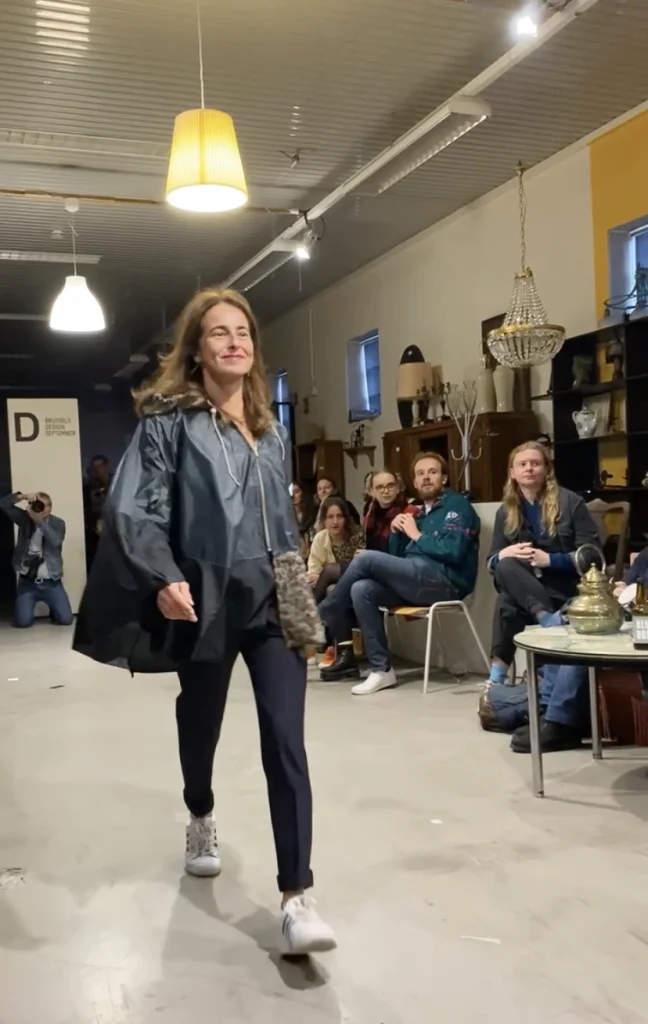
This might have been her fashion show debut, but Melanie regularly puts herself around people at markets and exhibitions. In fact, she has gained a lot of knowledge and adapted her designs from these discussions. “At the very beginning, I did quite short capes because the main umbrellas you find in the garbage are small,” but people asked for longer capes, whether they were taller or wanted more protection from the rain because they were cycling.
“I really have to prove why I pick up rubbish and do something else to put it in our circular economy…It’s like a broadcast for me, and I learn a lot from people visiting, they have questions, they have arguments and this is very important to develop my activity and understand what people need.”
Melanie Iudica, Marypup founder
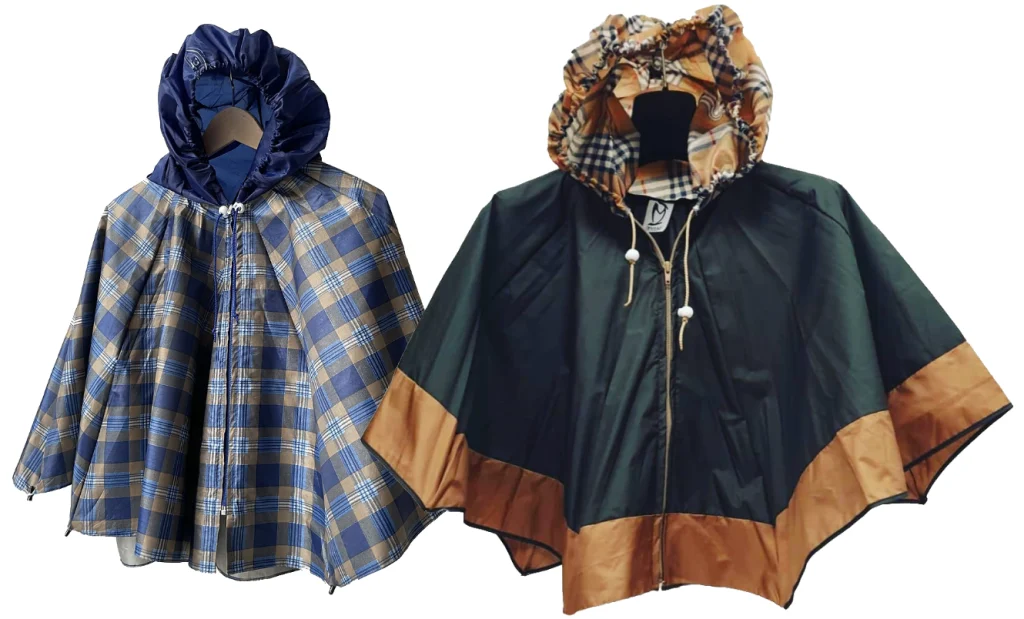
Who says fashion cannot be both fantastical and functional? Mary Poppins brings magic to the mundane, rather like the Marypup concept of turning umbrellas into capes. Melanie was surrounded by textile reuse as a child. Her mother, who fled East Germany and settled in Belgium, worked as an accountant. “Nothing artistic, but she always picked up different things to repair, not only because of the money but also because it was part of her culture and her generation to always repair and reuse.”
Melanie learnt how to make clothes as her mum made things for herself and her family. After studying textile design in a very artisanal way, Melanie worked across Europe before swapping fabric for commercial management. She stayed for fifteen years before her destiny called “I have to stop and go back to textiles.”
Currently a one-woman business, Marypup is also a social project, collaborating with workshops within a Belgian prison for an initiative that provides employment and training to detainees. From dismantling the umbrellas to cutting the fabric and sewing the compositions she designs, it has worked well for over two years. “They learn a lot from me, and I learn a lot from them. It shows that you can do a lot with our industrial rubbish and I would like to show people what is possible.”
Unlike sustainable textile solutions that require chemically intensive processing before they can be refashioned, Marypup’s upcycled rainwear adopts an eco and ethical approach by recrafting polyester that is already out there. These clothes visibly communicate their past, but also look futuristic.
Of course, one brand alone cannot change the forecast of climate change, but the Marypup message will touch more people than those that purchase a cape. I am left singing Weather with You by Crowded House. A song about the powerful effect we all have on our environment could just be the anthem for climate action.
© Photographs courtesy of Marypup
